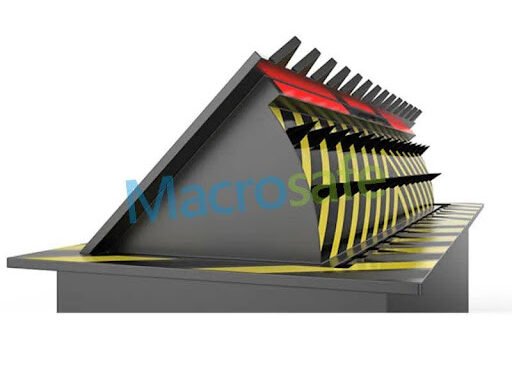Automatic road blockers are a crucial component of modern security systems, providing effective access control and preventing unauthorized vehicle entry. As technology continues to advance, the future of automatic road blocker technology holds exciting potential. This article explores the emerging trends and innovations that are shaping the future of automatic road blocker technology, including enhanced connectivity, intelligent monitoring, smart control systems, and environmentally friendly solutions.
Enhanced Connectivity and Integration:
One of the prominent trends in future automatic road blocker technology is enhanced connectivity and integration with other security systems. By integrating road blockers with access control systems, surveillance cameras, and alarm systems, organizations can create a comprehensive security network. This integration enables real-time monitoring, immediate response to security breaches, and automated control of road blocker operations. Improved connectivity ensures seamless communication between various security components, enhancing overall system efficiency and effectiveness.
Intelligent Monitoring and Analytics:
Advancements in artificial intelligence (AI) and machine learning are revolutionizing automatic road blocker technology. Intelligent monitoring and analytics capabilities allow road blockers to detect and identify potential threats accurately. AI-powered algorithms analyze data from sensors, cameras, and other devices to distinguish between normal vehicles and suspicious ones. This proactive approach minimizes false alarms and streamlines security operations. Additionally, intelligent monitoring provides valuable insights through data analytics, enabling organizations to identify patterns, trends, and potential vulnerabilities, thereby improving overall security strategies.
Smart Control Systems:
Future automatic road blocker technology is expected to incorporate smart control systems that optimize security operations and provide flexible access management. These systems allow for dynamic control and adjustment of access permissions based on real-time conditions. For example, road blockers can automatically lower or open based on predetermined criteria such as time, event schedules, or emergency situations. Smart control systems offer increased flexibility, enabling organizations to adapt to changing security requirements and seamlessly manage access while maintaining a high level of safety and security.
Integration with IoT and Sensor Technologies:
The Internet of Things (IoT) and sensor technologies are transforming the capabilities of automatic road blocker systems. Integration with IoT enables road blockers to communicate and exchange data with other interconnected devices, such as traffic management systems or emergency service providers. Sensor technologies, including radar, infrared, and laser systems, enhance the accuracy and reliability of threat detection. By leveraging IoT and sensor technologies, future road blockers will be able to detect and respond to potential threats more efficiently, further enhancing the security measures in place.
Energy Efficiency and Sustainability:
As sustainability becomes a priority across various industries, future automatic road blocker technology will emphasize energy efficiency and sustainability. Manufacturers are developing environmentally friendly solutions that minimize power consumption without compromising security. This includes the use of energy-efficient components, intelligent power management systems, and alternative energy sources such as solar panels or kinetic energy harvesting. By implementing sustainable practices, the security industry can contribute to reducing environmental impact while maintaining robust security measures.
Improved Reliability and Durability:
Future road blocker technology aims to enhance the reliability and durability of these security systems. Manufacturers are exploring advanced materials and construction techniques to build road blockers capable of withstanding harsh weather conditions, vandalism attempts, and potential vehicle impacts. This increased reliability ensures that road blockers can function effectively in demanding environments and continue to provide reliable security over an extended period. Furthermore, implementing predictive maintenance techniques using IoT connectivity allows for proactive identification of potential issues, reducing downtime and enhancing overall operational efficiency.
Ease of Installation and Maintenance:
Simplifying the installation and maintenance processes is another focus area for future automatic road blocker technology. Manufacturers are developing modular road blockers that can be easily installed and configured based on specific site requirements. Plug-and-play connectivity and user-friendly interfaces streamline the installation process, reducing time and resources needed for deployment. Additionally, remote monitoring capabilities allow for effective maintenance and troubleshooting, minimizing the need for on-site visits. These advancements contribute to increased convenience, cost-effectiveness, and reduced disruption during installation and maintenance activities.
Conclusion:
The future of automatic road blocker technology is full of promise and innovation. Enhanced connectivity, intelligent monitoring, smart control systems, integration with IoT and sensor technologies, energy efficiency, improved reliability and durability, and simplified installation and maintenance are among the key trends shaping the development of road blockers. As technology continues to evolve, organizations can expect more sophisticated and efficient automatic road blocker systems that not only provide robust security but also contribute to sustainability and operational excellence. The future of automatic road blockers is set to revolutionize access control and raise the bar for public safety and security standards.
Also Read Interesting Articles At: Ebeak.



